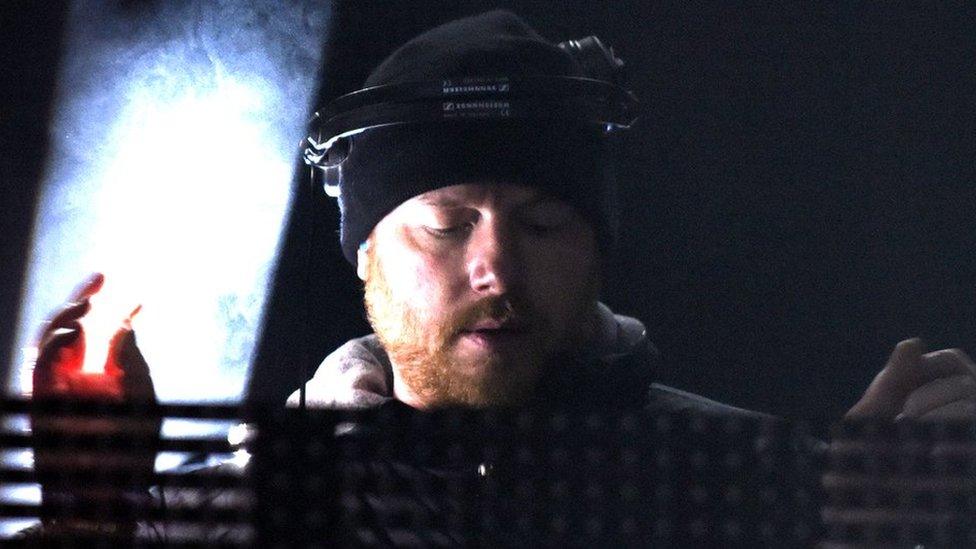'Worst time ever' for festivals due to doubling costs
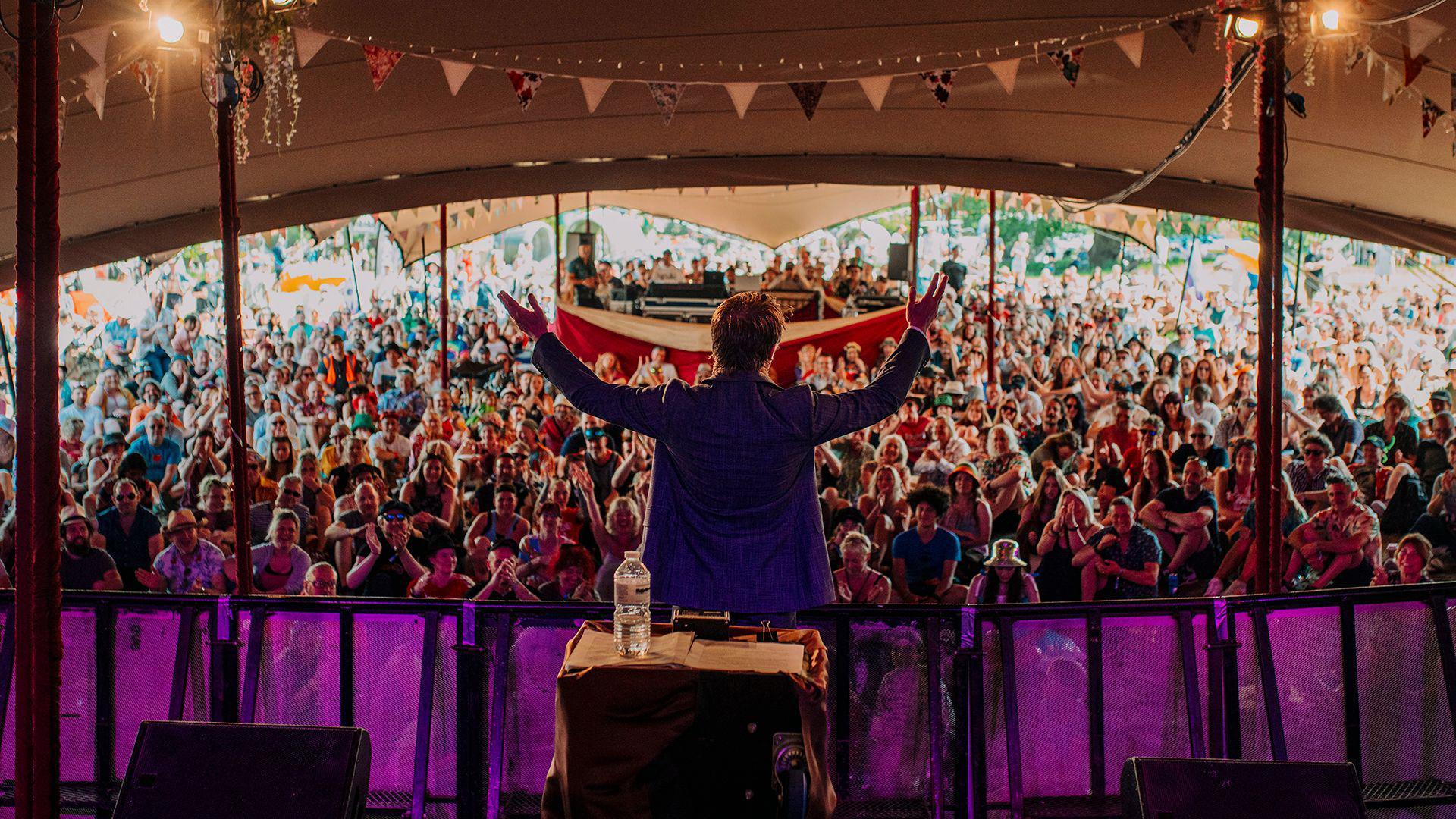
Festivals, such as Shindig, contribute £1.75bn to the UK economy and provide thousands of jobs
- Published
Festival organisers have said more government support is needed as rising costs leave them struggling to stay afloat.
At least 36 UK festivals announced a postponement, cancellation or complete closure in 2024, the Association of Independent Festivals (AIF) said.
"Last year was the most expensive year to produce the event that we've ever had," said Simon Clarke, the director of Shindig, which will host its final event later this month.
A spokesperson for HM Treasury said festivals were "a vital part of British culture" and added that the government had recently extended its Supporting Grassroots Music Fund by £5m "to cover festivals and provide additional support".
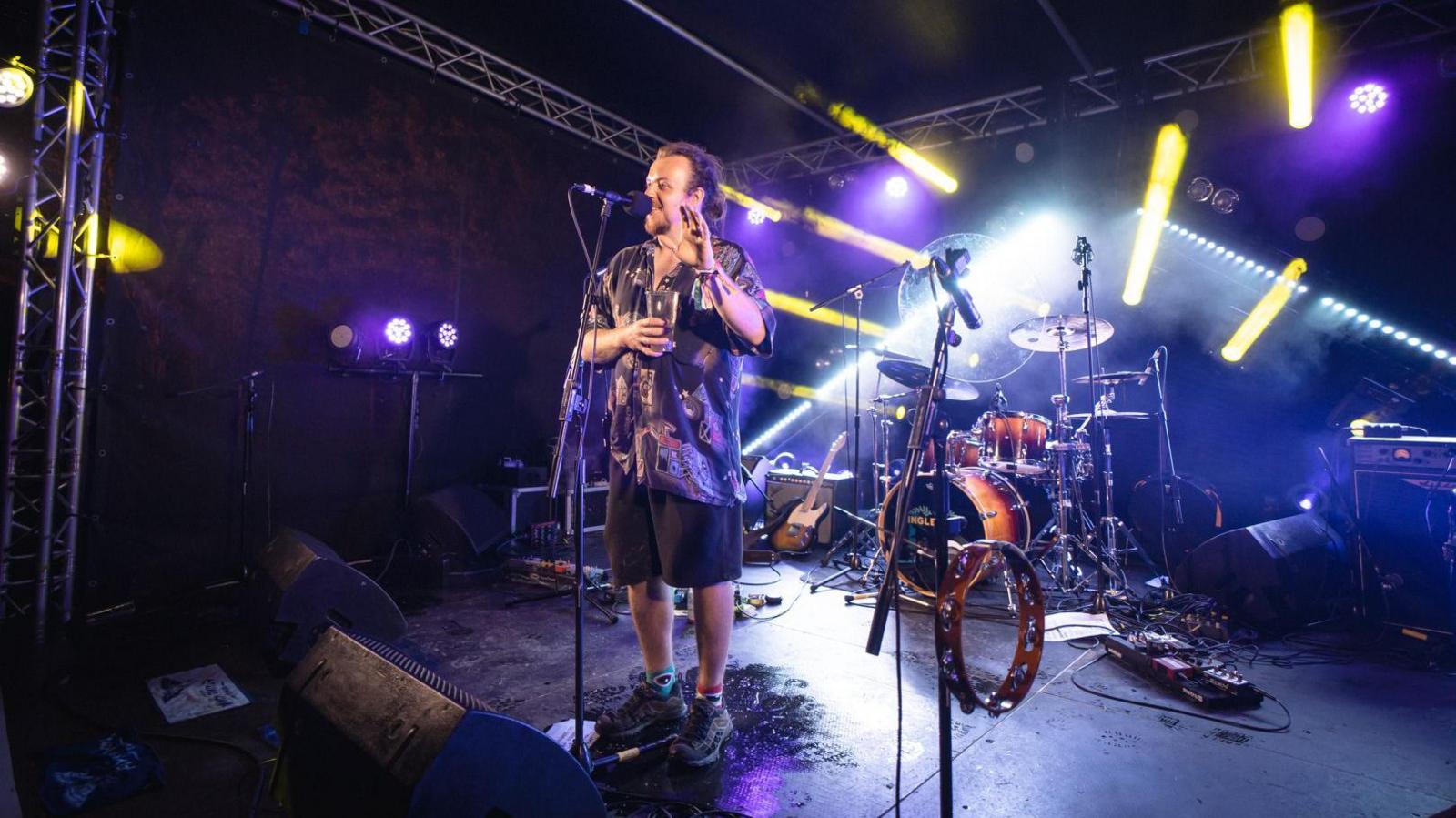
"These festivals are just dropping like flies," said Dom Mosley
But the AIF said the situation is the worst it has ever been and is calling for a VAT reduction on ticket sales.
Among the cancellations and postponements are NASS in Somerset, Nibley Festival and Barn on the Farm in Gloucestershire and Inglefest, near Bristol.
"This is actually worse than Covid," said John Rostron, CEO of the AIF.
"Prior to the pandemic, independent festivals were growing, flourishing."
But he said it now costs "double the amount that used to do to put on your festival".
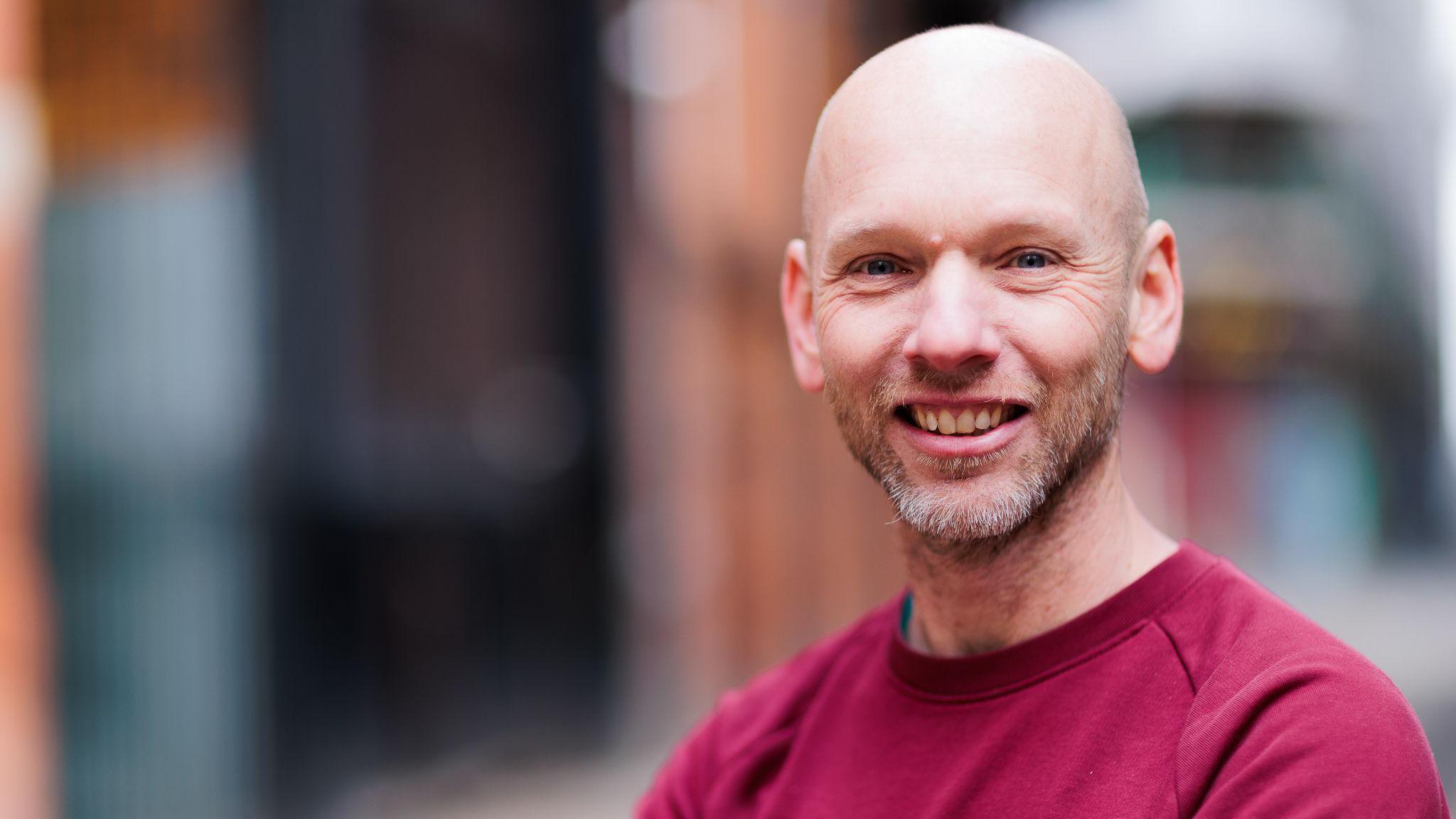
"This is the worst time ever for independent festivals," said John Rostron from the AIF
Later this month, Shindig will welcome 10,000 people to Dillington Estate in Ilminster for the last time to see acts including Groove Armada and Brand New Heavies.
"Pre-Covid, definitely, we'd get 50% of our sales early in the year and now it's swung the other way," said Mr Clarke.
He explained customers buying tickets last minute had left them with a "cashflow issue".
On top of that, its running costs "are probably up by about 40% now", added Mr Clarke.
Shindig employs about 1,000 staff and another 1,000 musicians each year.
Mr Clarke said it had been "difficult" to tell them all that next year would not be happening.
"It's not great news for them or us."
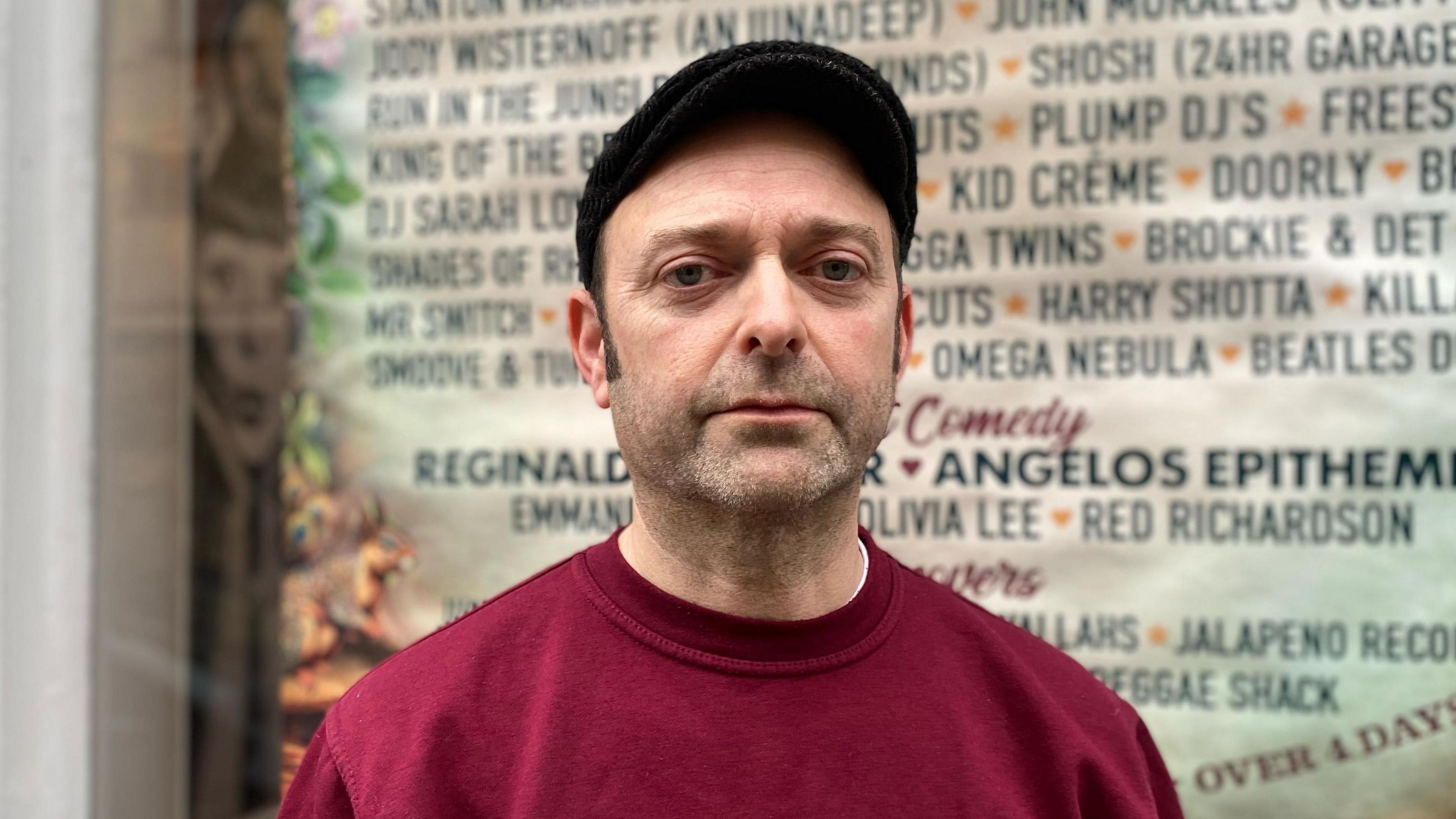
Simon Clarke said they are hoping to sell out the final Shindig and "have a really good last hurrah"
Inglefest, a smaller festival in Wickwar, South Gloucestershire, which has been running since 2013, has postponed this year's event.
The organisers are now hoping to raise £10,000 via Kickstarter to secure its future.
"It's like a lifeline to help us to cover those additional costs that we've lost over the last year or two," said co-organiser Dom Mosley.
'Heart-breaking'
He explained if they did not raise the money it would be "the nail in the coffin" for the festival.
"It's quite heart-breaking," he said.
"It's just not financially viable to keep going in the current climate without some pretty hefty changes."
He added: "I think the Government should be doing a lot more to support grassroots music in general.
"It's a bit of an epidemic of festivals just dropping at the moment, and it's really sad to see."

Shindig's 10th and final event will run from 23 until 26 May
Chris Smith, director of WOMAD which is held in Malmesbury, Wiltshire, said: "There isn't an element of the festival that hasn't been scrutinised and challenged, but it's always cost versus safety, sustainability and the audience experience.
"We have to remember that if we make the wrong decisions and it impacts the quality of the experience for the audience then they may not come back and the financial situation gets worse, being potentially terminal."
Mr Smith said "wholesale support of the cultural sector" is needed.
"Every week a new story breaks about a venue closing its doors, artists unable to make a living.
"It has never been about cost, it's about the social economic return for society in the form of an industry that generates billions for the country."
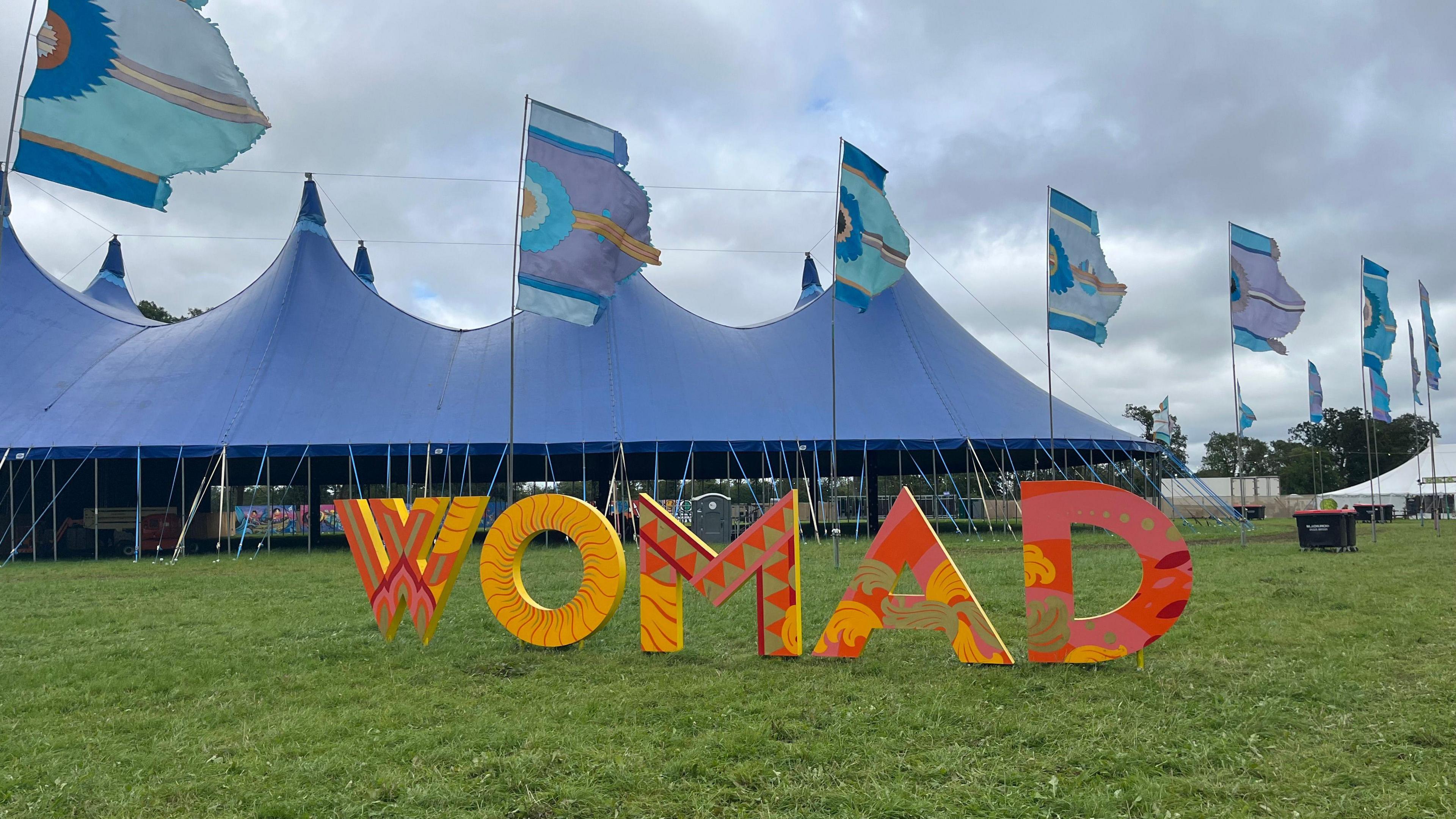
Each year around 40,000 people attend WOMAD in Charlton Park
Mr Rostron explained people were still buying tickets to festivals, but events were running at a loss.
The AIF wants the government to reduce VAT from 20% to 5% on ticket sales for the next three years.
"It was a lifesaver during the pandemic and right now it's something that we'd need, just for a few years, just on ticket sales.
"But that would give the space that we need for festivals to be able to happen, come through and recover."
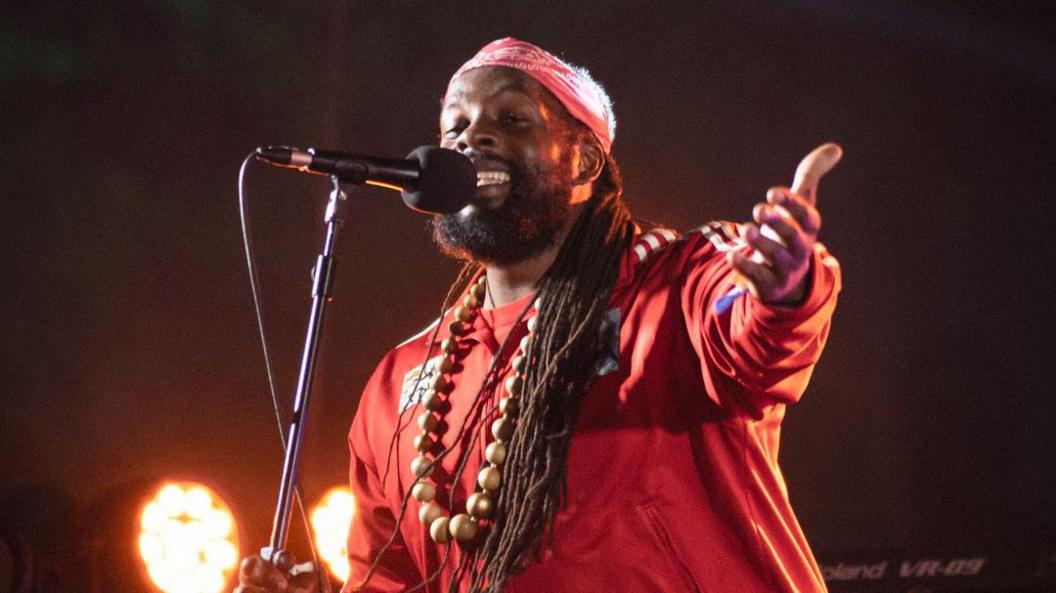
Inglefest's line up is always made up of local artists, including Bristol's Da Fuchaman in 2023
"You wouldn't have the big festivals without the little ones," said Mr Mosley.
"It's so important that we don't lose any more of these grassroots events."
The spokesperson for HM Treasury said there were no plans to reduce VAT on ticket sales but explained there were grants available for the grassroots music industry.
"We continue to work closely with the sector to understand the issues facing festivals," they added.
Related topics
- Published25 March 2024
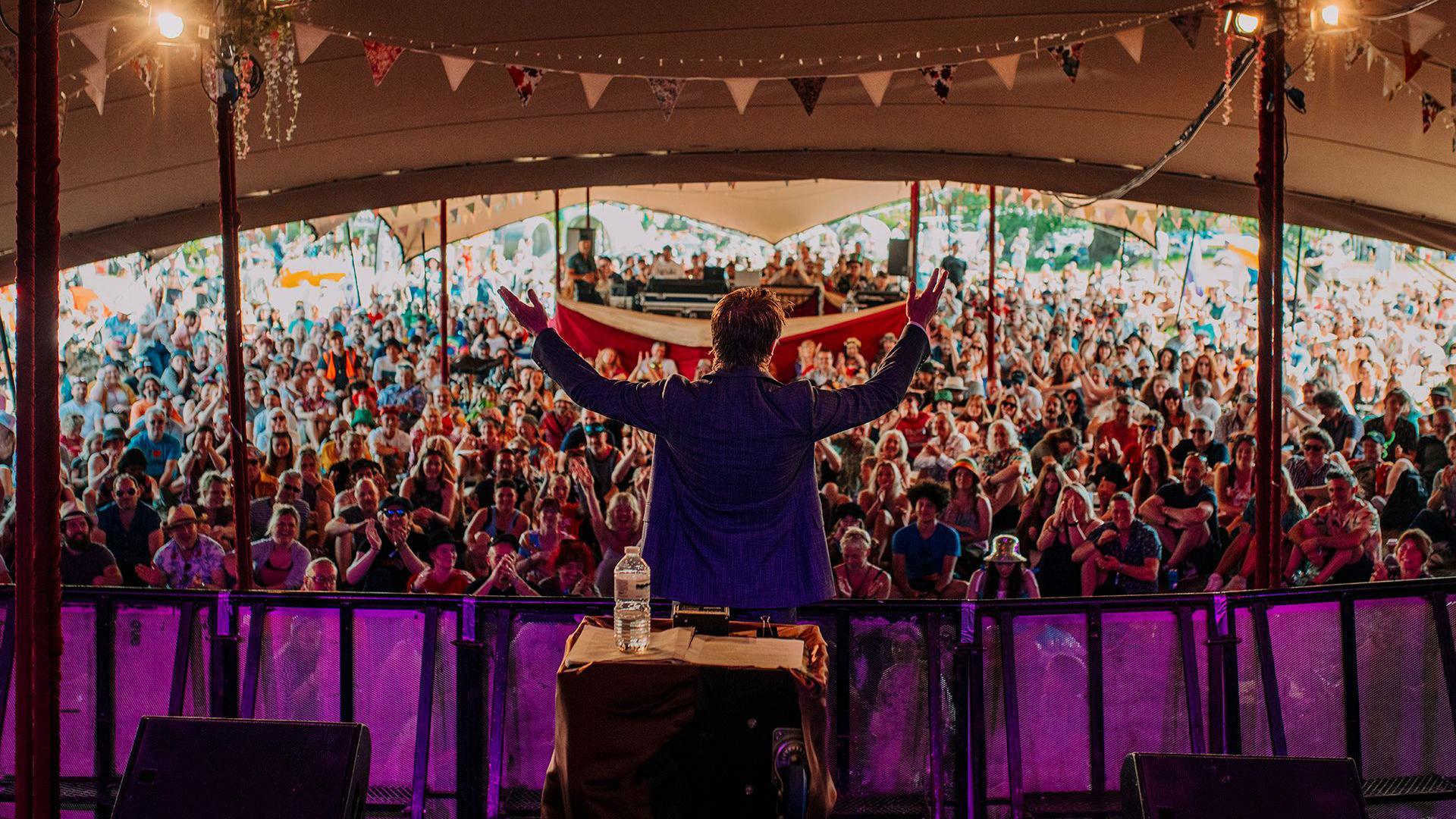
- Published9 May 2023
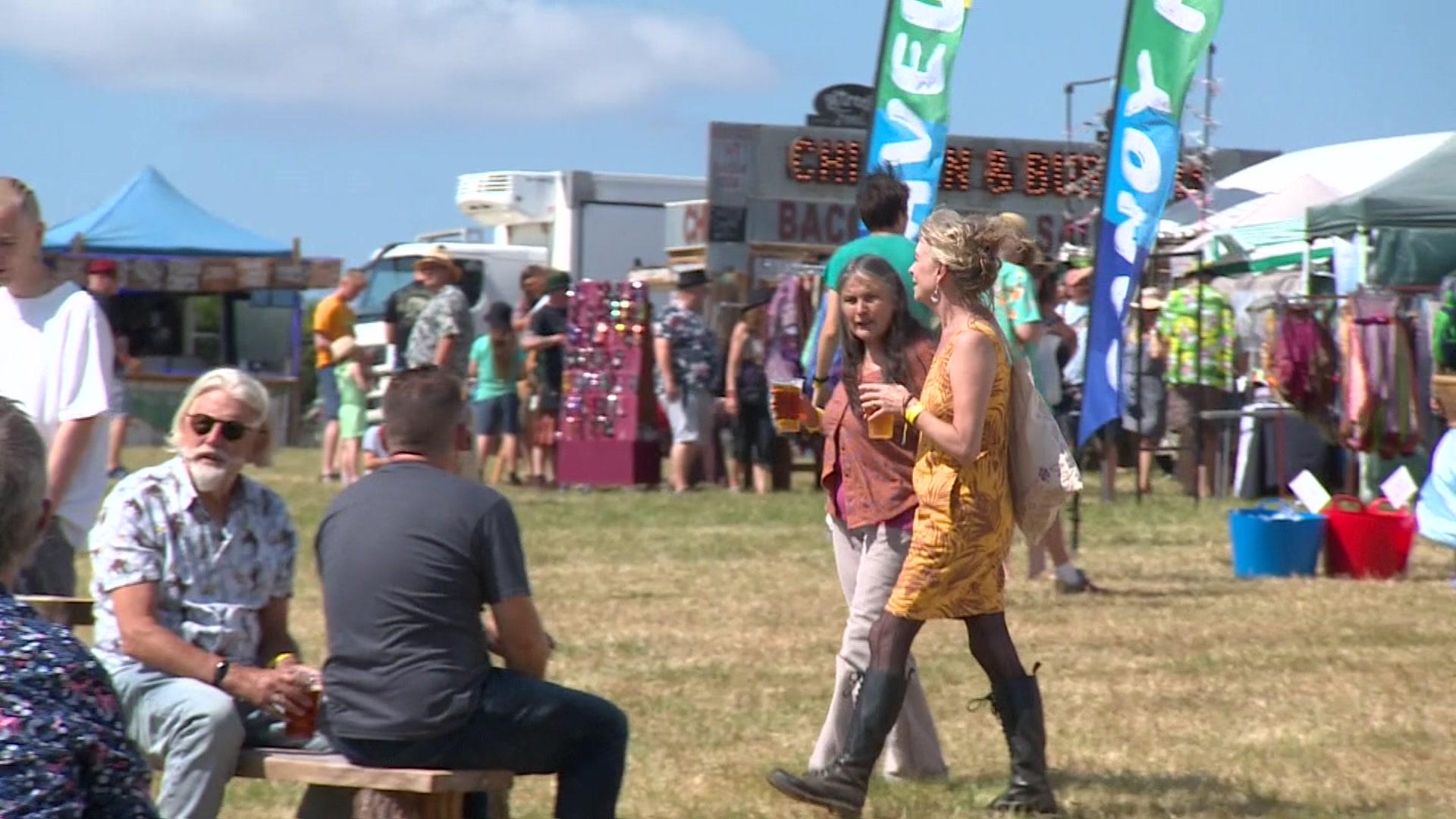
- Published8 February 2024
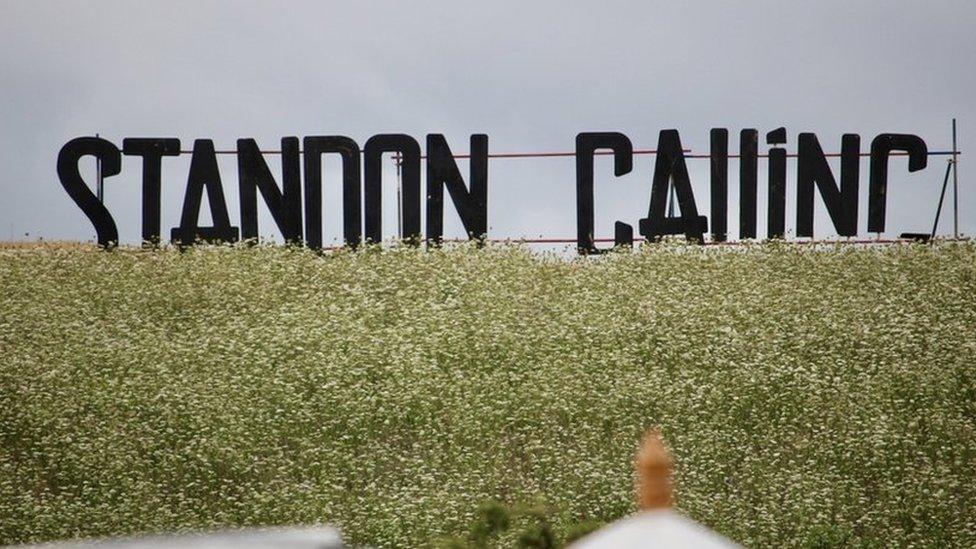
- Published30 April 2024
